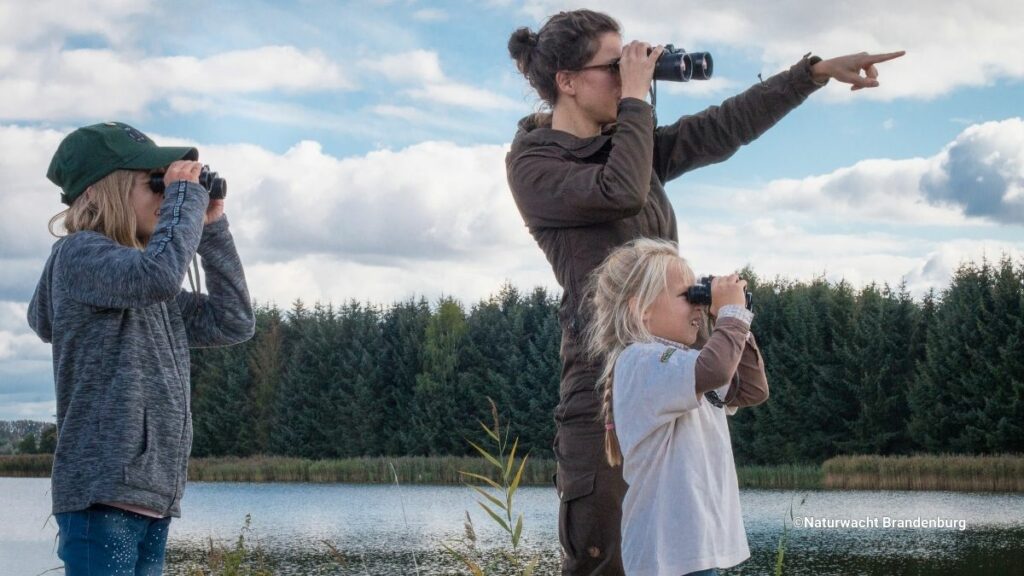Junior Rangers in the German federal state of Brandenburg learn about diversity on several levels: as species and habitat diversity, but also as diversity among themselves and how it contributes to joint solutions and functioning democracy.
Moritz Detel was a ranger at Naturwacht Brandenburg for eight years and is now head of the environmental education department of the Naturwacht Brandenburg. He tells us how the Junior Ranger programme works in the 15 large protected areas and explains its approach to current challenges such as the social divide in many countries.
Moritz, what does your work for the Junior Rangers in Brandenburg look like and what are the main objectives of your programme?
Coordinating our Junior Ranger programme for the whole of Brandenburg is one of the main focuses of my work, especially the annual Junior Ranger Camp. With our Junior Ranger programme, we are part of the Junior Ranger programme of National Natural Landscapes, the alliance of large protected areas in Germany. We have around 250 Junior Rangers and approximately 120 join the annual camp, which is held alternately in our protected areas. I also advise rangers on how to set up Junior Ranger groups and I organise meetings for all Rangers working with Junior Rangers to talk about experiences and to exchange ideas.
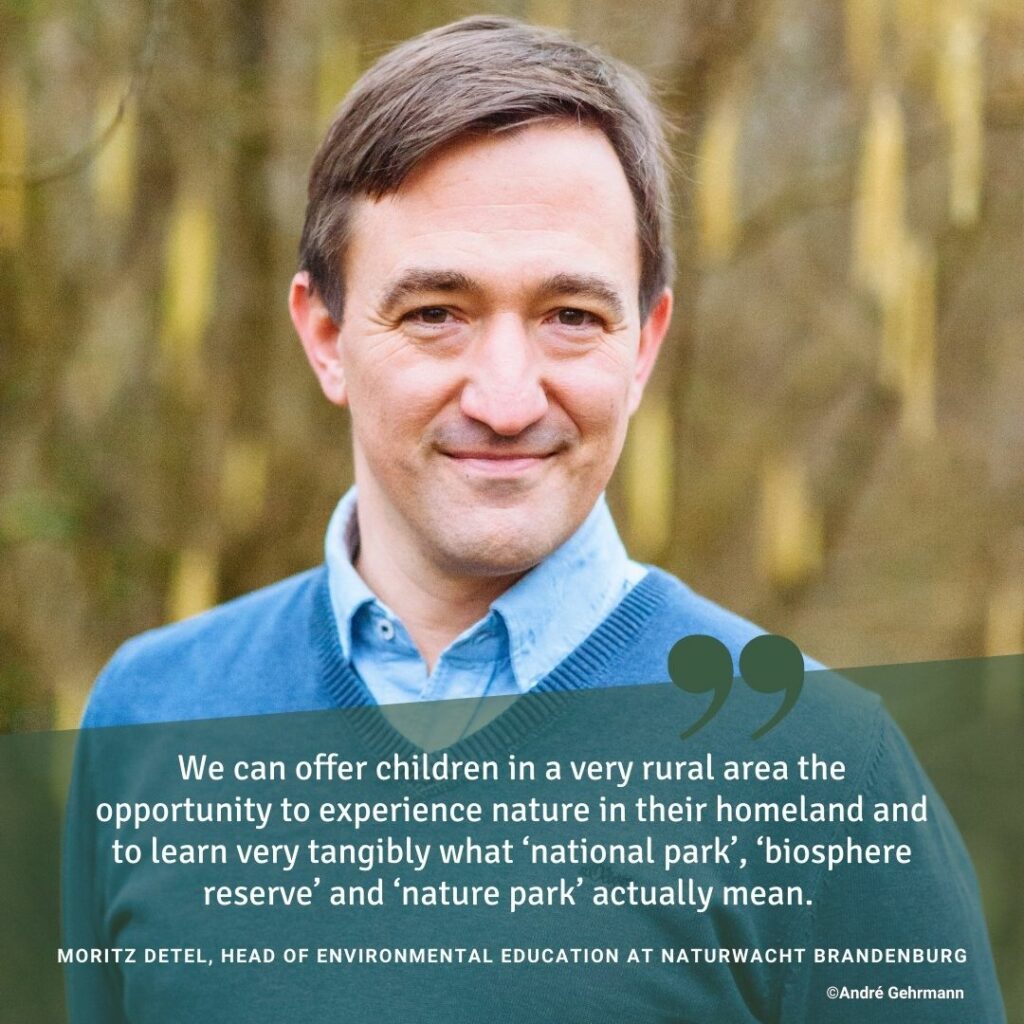
Through the programme, we can offer children and youths in a very rural area the opportunity to get to know their homeland, to experience nature and to learn very tangibly what ‘national park’, ‘biosphere reserve’ and ‘nature park’ actually mean. And, currently a very important topic, we contribute to democracy education. This is because the focus of all our environmental education programmes is Education for Sustainable Development (ESD) (see Info for the German government’s ESD approach), which includes democracy education. In our work with Junior Rangers, we therefore show how diversity helps to find solutions and what opportunities there are to find them together when dealing with complicated issues.
What impact do your Junior Ranger programmes have on the population?
Our big advantage is that the rangers do the educational work. They are out in the field and know their areas really well. They pass on this knowledge about the protected areas and their enthusiasm for nature to the Junior Rangers – who in turn carry this into their families and circles of friends. The experience of self-empowerment and results through participation in ranger work is particularly important here. For example, when they can say: this is our toad fence, which we built together, or our meadow, that we have mown jointly.
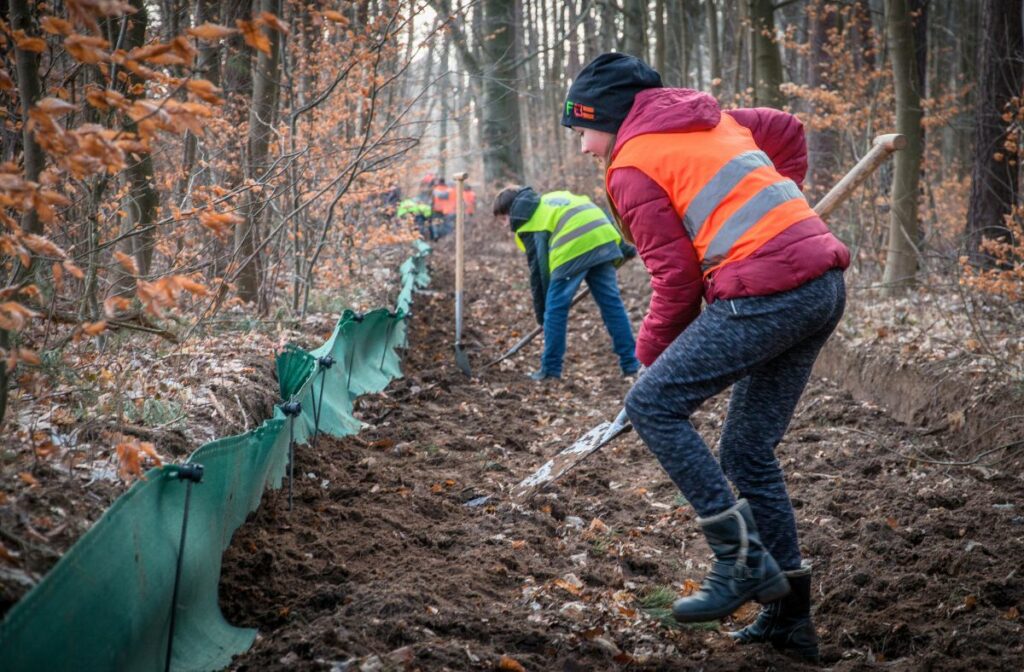
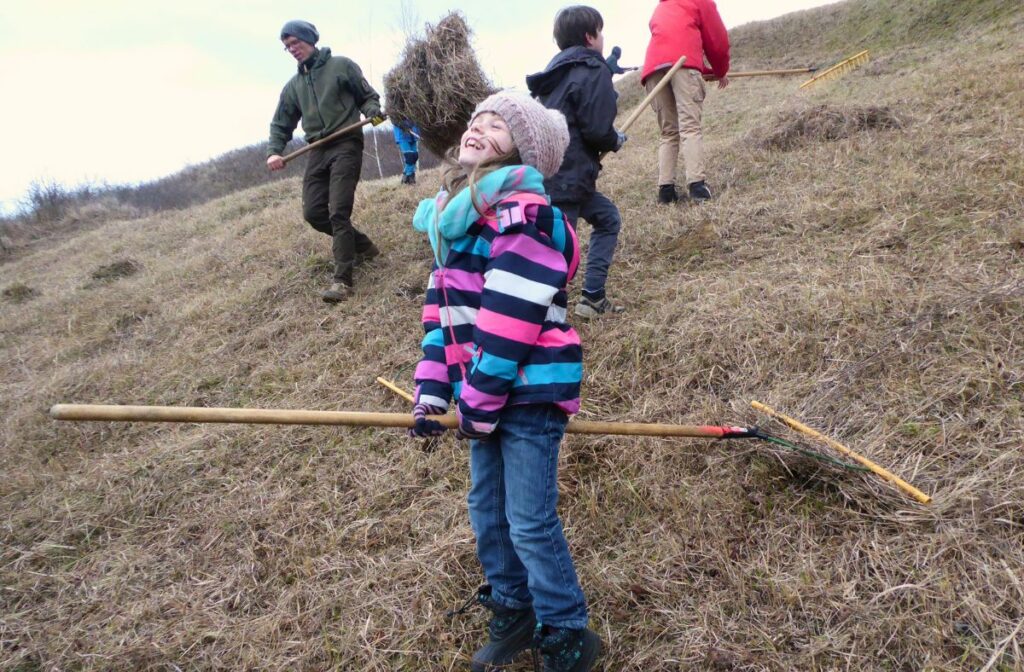
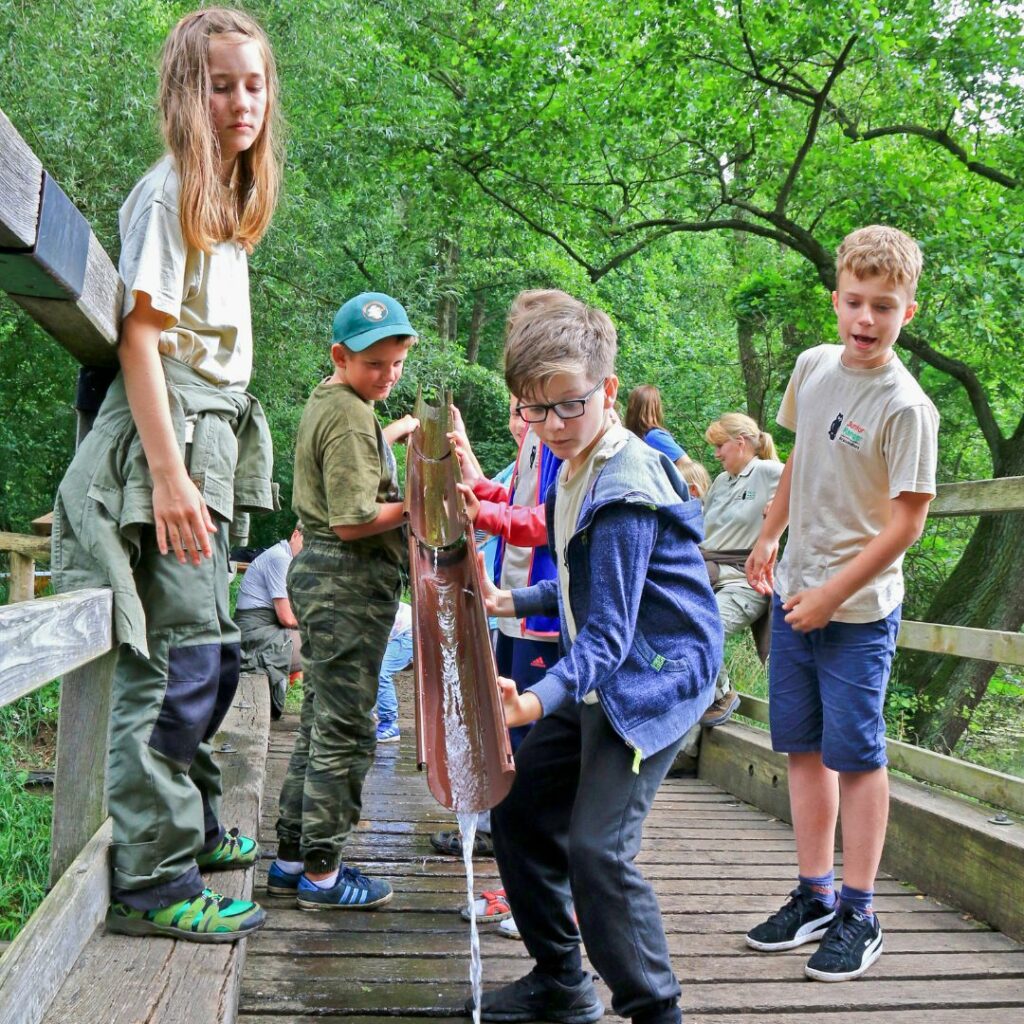
Which skills do rangers need to work with Junior Rangers?
First of all, they need to know the area well. And then, of course, it is mainly those who have a personal access to working with children who do this. We are certified by the state of Brandenburg for Education for Sustainable Development and are gradually sending all Junior Ranger supervisors for further training through the state in order to have a standard in terms of pedagogy and understanding of ESD.
How do you interact with Junior Ranger projects nationally and internationally?
This year, two of our Junior Rangers took part in the international Junior Ranger Camp of the Europarc Federation in Wales. And there are always Junior Rangers from us at the nationwide Junior Ranger Camp organised by the National Natural Landscapes. At such meetings, it is interesting for the children and young people to see that there are also Junior Rangers in other federal states or outside Germany and they get to know the protected area where the camp takes place and learn about its habitats, species and other characteristics. As rangers and organisers, we learn how the Junior Ranger programme is organised in other National Natural Landscapes.
“It is a challenge to keep Junior Rangers as volunteers as soon as they get older and leave the region. But discussions with partners like Europarc Federation led to exciting approaches.”
Are there any topics that you are working on with other organisations?
I am discussing with the National Natural Landscapes what prospects can be offered to Junior Rangers as they get older. There are also ongoing discussions with the Europarc Federation in this regard. It is in the nature of things that it is a challenge to keep Junior Rangers as volunteers as soon as they leave the region for training or studies. But there are exciting approaches here, from monthly appointments at the weekend when they are visiting home, to offers such as workshops for photography or writing press releases, which also help them for their CV.
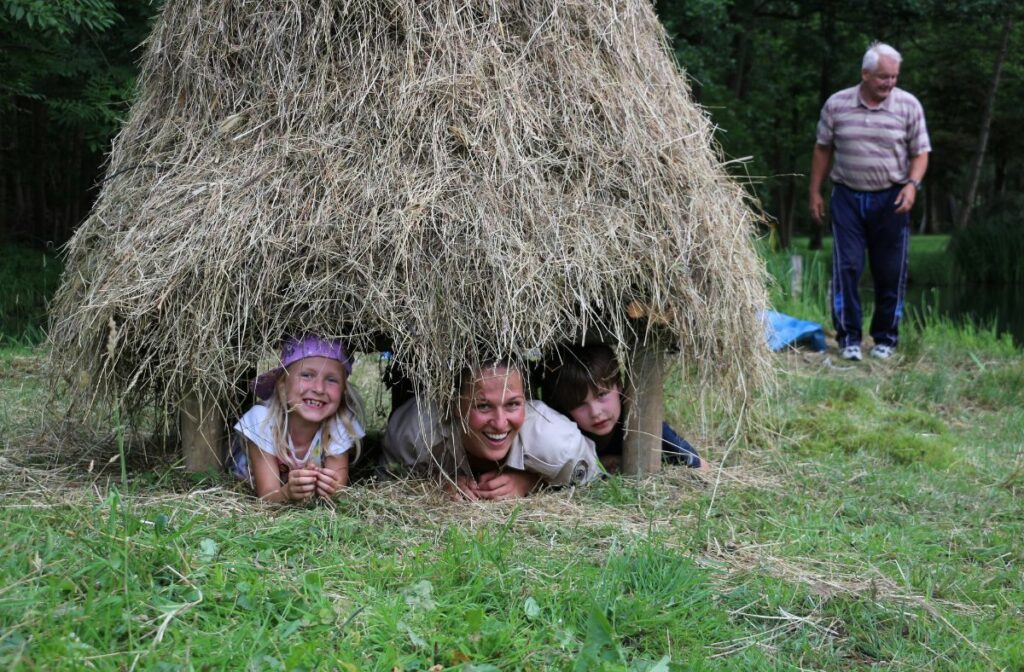
Where do you see the biggest challenges in working with Junior Rangers?
The Junior Ranger programme is set for our federal state. This allows us to make time and resources available for working with Junior Rangers. Setting up a group can be a challenge if, for example, there is a generational change. In our case, informing children in schools or information stands has always worked well, as has word-of-mouth propaganda, because the rangers are well-known in the areas.
“Rangers working with Junior Rangers regularly attend further training courses on content and educational methods as well as exchanging ideas among each others.”
And when working with the children, it can of course happen that some are not easy to handle. We provide the rangers with special training for this, and they also regularly attend further training courses on content and educational methods as well as exchanging ideas. For projects in a single protected area, it can be more difficult to find suitable approaches.
There are still no Junior Rangers in many European countries. What would you recommend to rangers and organisations wishing to introduce such a programme?
The first question is whether the Junior Ranger work is or should be part of your job. Because it must be very clear: Working with junior rangers takes time and the backing of the employer to provide appropriate resources. As far as content and pedagogy are concerned, an exchange with the National Natural Landscapes, the Europarc Federation or us, for example, is certainly useful. A few tips or recommendations of addresses and projects often help.
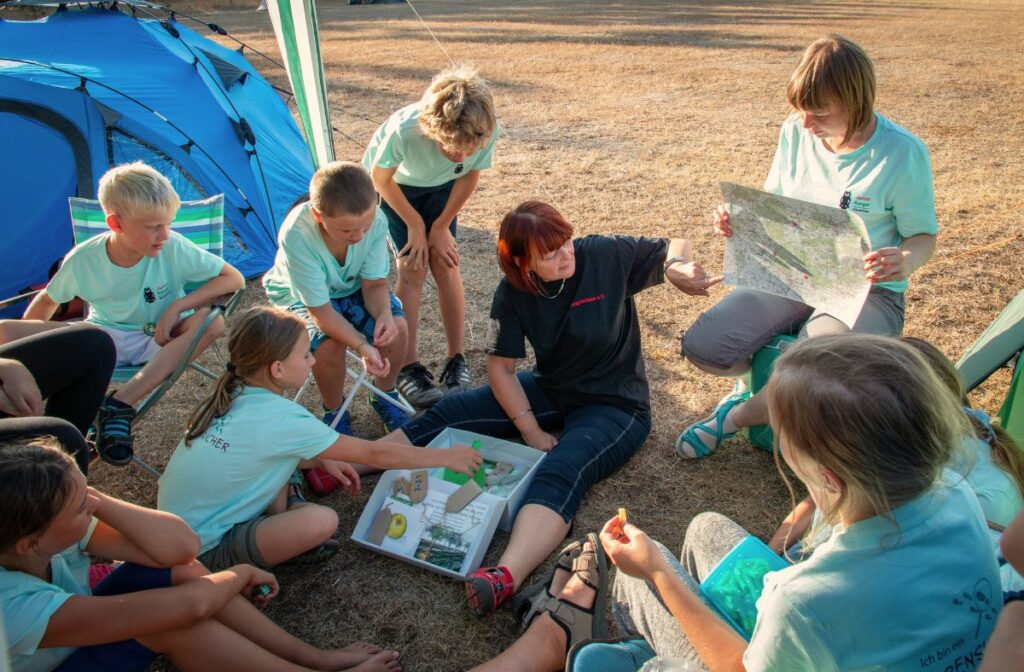
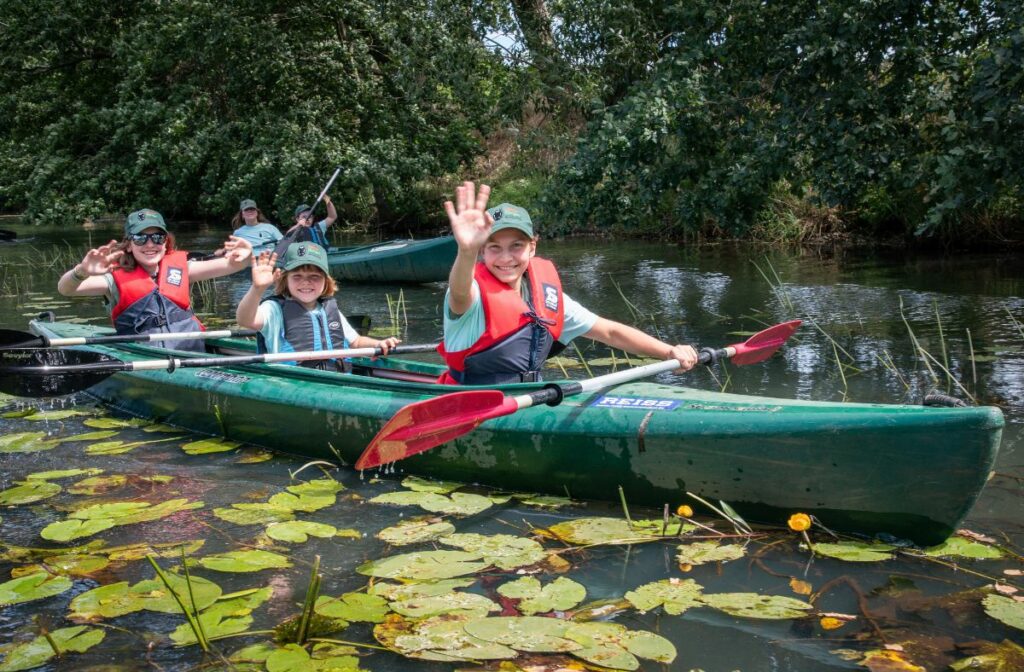
What are the general conditions for insurance or care key?
We are organised independently of the schools as free groups with our own accident and liability insurance. As standard, two people always supervise the Junior Ranger groups, which must not be too large. This is usually regulated by the practical circumstances, as, for example, only eight children can fit into the minibuses in which they drive into the area. The nature of the terrain must also be known on a daily basis and activities need to be planned depending on the weather.
What is your personal highlight when working with Junior Rangers?
Seeing how happy the children are at the end of the Junior Ranger Camps, what they have experienced together, feeling their genuine enthusiasm and remembering my own similar experiences that led me to nature conservation: that is definitely my highlight. In addition, there is the conviction that one or two of them will certainly stick with nature conservation later on. And in fact, we have former Junior Rangers who are now studying sustainable development programmes or even work already with us as rangers.
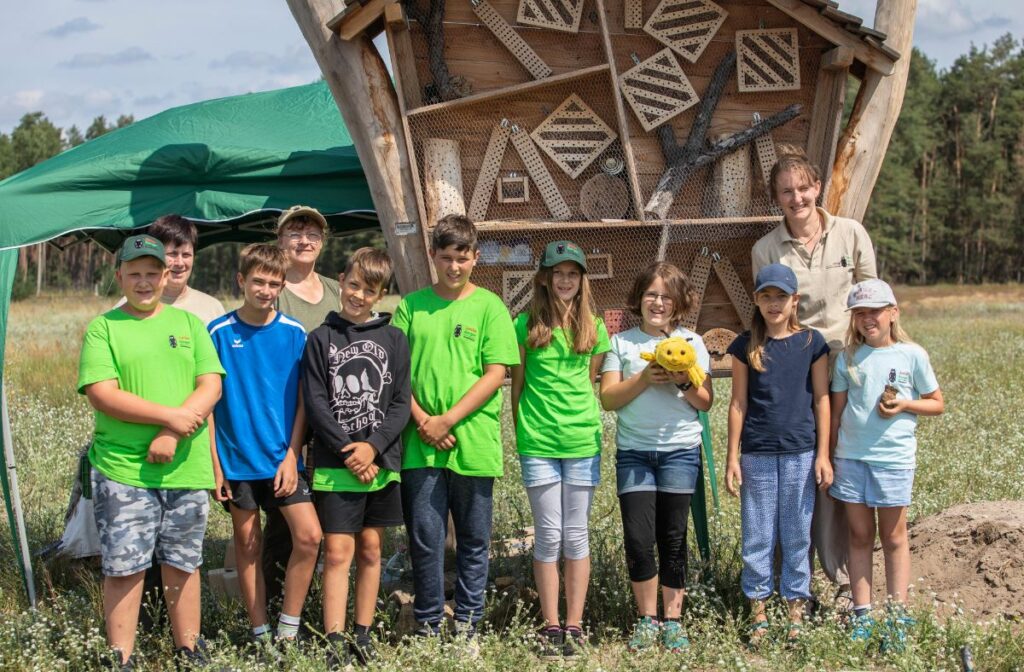
What do you wish for the future of Junior Rangers in Europe?
That there can be junior rangers everywhere, so every protected area has actually established junior ranger programmes. That there are people who have the abilities to do ESD with children well, who have the time and the desire to do it and who can exchange ideas at the camps both nationally and internationally. The supervising rangers and Junior Rangers can thus experience diversity in people and nature. In the face of challenges such as climate change or the shift to the right in many countries, this helps to boost confidence that we can take countermeasures together.
What is ESD?
ESD stands for Education for Sustainable Development. Development is sustainable when people around the world, now and in future, can live in dignity and develop their needs and talents while respecting planetary boundaries. Such a social transformation requires strong institutions, participatory decision-making and conflict resolution, knowledge, technologies and new patterns of behaviour.
ESD enables all people to understand the impact of their own actions on the world and to make responsible, sustainable decisions.
Source: www.bne-portal.de

